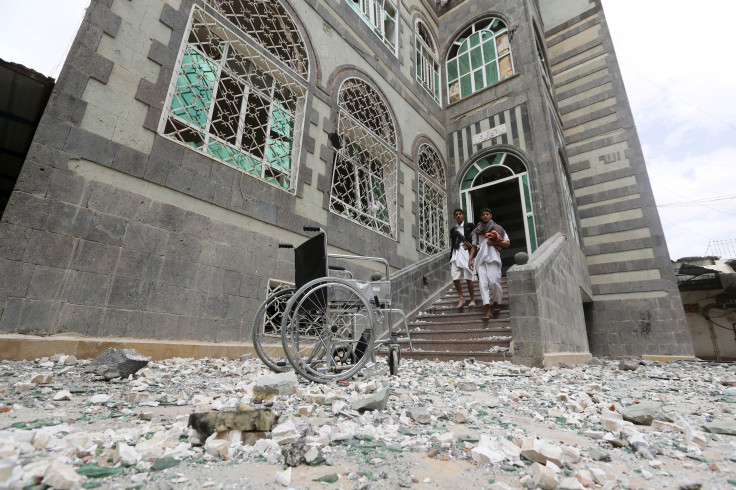Saudi ‘Operation Restoring Hope’ In Yemen Seeks To Restore Hadi To Power, Still Includes Airstrikes

ISTANBUL -- The Saudi Arabian-led military coalition that's been conducting airstrikes in Yemen since last month, in what was known as “Operation Decisive Storm," announced Tuesday that the operation had finished, seemingly implying that the aerial bombardments in the country would come to a halt. But airstrikes continued Wednesday as the next phase of the campaign and a new mission began, confusing analysts and even civilians on the ground.
"Operation Decisive Storm has achieved its goals … removing the threat to Saudi Arabia and neighboring countries," said a statement carried by the Saudi state news agency SPA. "With its end, the new Operation Restoring Hope begins with the following goals: continuing to protect civilians, continuing to fight terrorism and continuing to facilitate the evacuation of foreign nationals and to intensify relief and medical assistance to the Yemeni people."
Saudi Arabia came under increasing international pressure to stop an aerial campaign that has killed hundreds, displaced thousands and left cities without power or running water. The humanitarian organizations working in Yemen have repeatedly over the past three weeks appealed for more money to assist the civilians trapped in the country. Despite its focus on restoring to power President Mansour Abdrabbuh Hadi and ousting the Shiite Houthi rebels, the new mission will still contain military components, including airstrikes and Saudi Arabian ground intervention, which could worsen the humanitarian situation.
Although the new mission is focused on political outcomes, its remaining military dimension will switch from targeting weapons depots and Houthi fighters to ramping up ground efforts that will pave a path to allowing Hadi to return to Yemen as the country's legitimate ruler.
The announcement on Tuesday caused confusion among leaders and experts. Iran’s deputy foreign minister, Amir Abdollahian, whose government supports the Houthis, said that there would be a halt to military operations. A report circulated saying that the rebel faction connected to former Yemeni president Ali Abdullah Saleh wanted a ceasefire. Neither of those statements was true.
Yemen’s press attaché in Washington said on Twitter that he did not understand the announcement or the new mission or its goal.
I will be honest, I have no idea what's going on ! #Yemen
- Mohammed Albasha (@Yemen411) April 21, 2015Even civilians were confused by the news. Humanitarians on the ground said they were expecting a halt in aerial bombardments that would allow them to deliver needed supplies. But in the early hours of Wednesday morning, the airstrikes continued, hitting Houthi targets in Sanaa.
Family and friends in #Sanaa can hear more heavy strikes! Is this the end of #DecisiveStorm or beginning or #ORH
- Nawal Al-maghafi (@Nawalf) April 21, 2015The new mission's military element aims to push back the Houthis, preventing them from taking control of more territory; a ceasefire deal is not envisioned at this point. The statement from the Saudi state news agency also suggests that the coalition could send ground troops to Yemen to control the streets.
Saudi Arabia's King Salman on Tuesday ordered through a royal decree an elite ground unit in the National Guard Forces to deploy to Yemen to fight against the Shiite Houthi militant group. No other details of the deployment have been announced. It is unclear if other countries in the coalition will join Saudi forces on the ground in Yemen. Several countries in the coalition, including Egypt and Pakistan, have said they would not put boots on the ground.
In connection with the news phase of the coalition's mission, Yemeni Vice President Khaled Bahah visited Bahrain. Bahah was set to meet with officials in the capital about the possibility of peace talks and the role of the Gulf Cooperation Council in the current crisis.
© Copyright IBTimes 2024. All rights reserved.





















